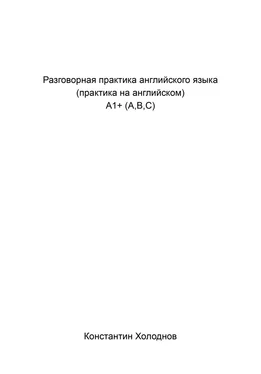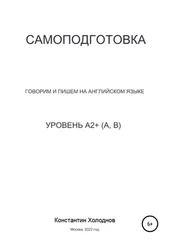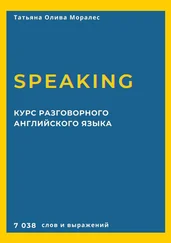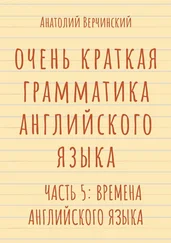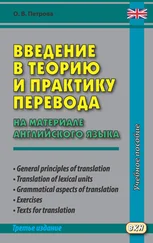afraid adjective /əˈfreɪd/ (э/а) боящийся
[not before noun]
• A1 feeling fear; frightened because you think that you might be hurt or suffer
(Я, Г: Не бойся.)
Не быть боящимся.
Don't /doʊnt/ be /bi/ afraid.
Они знают Я есть боящийся (чего?) высот.
They know /noʊ/ I'm /aɪm/ afraid of heights /haɪts/.
(afraid of somebody/something)
(Я, Г: Вы боитесь пауков?)
Есть ты боящийся (чего?) пауков?
Are you afraid of spiders /ˈspaɪdəz/ (э)?
(Я, Г: Она боялась открыть дверь.)
Она была боящаяся открыть дверь.
She was /wɒz/ afraid to open /ˈoʊpən/ (э) the door /dɔː(r)/.
(afraid to do something)
• A1 worried about what might happen
(Я, Г: Не бойтесь спрашивать, если вы не понимаете.)
Не быть боящимся спрашивать если вы не понимаете.
Don't /doʊnt/ be afraid to ask /ɑːsk/ if you don't understand /ˌʌndəˈstænd/ (э).
(afraid to do something)
(Я, Г: Он, конечно, не боится высказывать своё мнение.)
Он безусловно/непременно/несомненно/определённо* есть не боящийся говорить его мысль**.
*without doubt
*SYNONYM definitely /ˈdefɪnətli/ (э)
*(used in answer to questions) of course
**[countable, uncountable] the part of a person that makes them able to be aware of things, to think and to feel
**[countable] your ability to think and reason; your intelligence; the particular way that somebody thinks
**SYNONYM intellect /ˈɪntəlekt/ (э)
**[countable] a person who is very intelligent
**SYNONYM brain /breɪn/
**(!!! – в этом значении ) [countable] your thoughts, interest, etc.
**[countable, usually singular] your ability to remember things
He certainly /ˈsɜːtnli/ isn't /ˈɪznt/ afraid to speak /spiːk/ his /hɪz/ mind /maɪnd/.
Идиома I'm afraid
A2 used as a polite way of telling somebody something that is unpleasant or disappointing, or that you are sorry about
(используется как вежливый способ сообщить кому-то что-то неприятное или разочаровывающее, или о том, что вы сожалеете)
(Я, Г: Боюсь, я не могу вам помочь.)
Я не могу помогать вам, Я есть боящийся.
I can't /kɑːnt/ help you, I'm /aɪm/ afraid.
Попробуйте придумать фразу со словом afraid . Я вот такую придумал: I'm /aɪm/ afraid of snakes /sneɪks/.
after preposition /ˈɑːftə(r)/ (а) после, через
• A1 later than something; following something in time
(Я: Мы отправимся после обеда.)
(Г: Мы уйдём после обеда.)
Мы будем оставлять/покидать/уходить/уезжать после* ланча**.
*later than something; following something in time
**a meal eaten in the middle of the day
We will /wɪl/ leave /liːv/ after lunch /lʌntʃ/.
We'll /wiːl/, /wil/ leave after lunch.
(Я: Давайте встретимся послезавтра)
Давайте встретимся день после завтра.
Let’s /lets/ meet /miːt/ the day /deɪ/ after tomorrow /təˈmɒroʊ/ (у).
(Я: Давай встретимся через неделю.)
Давайте встречаться неделя после следующей.
Let’s meet the week /wiːk/ after next /nekst/.
(Я, Г: Выиграв приз, она в одночасье стала знаменитой.)
После выигрывания/выигрыша приза она стала знаменитой внезапно_или_быстро/в_течение_ночи_или_за_ночь*.
*during or for the night
*suddenly or quickly
After winning /ˈwɪnɪŋ/ the prize /praɪz/ she became /bɪˈkeɪm/ famous /ˈfeɪməs/ (а/э) overnight /ˌoʊvəˈnaɪt/ (а).
become /bɪˈkʌm/ – became /bɪˈkeɪm/ – become /bɪˈkʌm/
(Я: Через час я отправился домой)
(Г: Через час я пошёл домой)
Через/спустя/после час Я пошёл домой.
After an hour /ˈaʊə(r)/ (а) I went home /hoʊm/ (= when an hour had passed).
go /ɡoʊ/ – went /went/ – gone /ɡɒn/
• B1 next to and following somebody/something in order or importance
(Я: Ваше имя стоит в списке после моего.)
(Г: Твоё имя идёт после моего в списке.)
Твоё имя приходит/имеет_специфическую(особую)_позицию* после** моего в списке/перечне.
*[intransitive] + adv./prep. (not used in the progressive tenses) to have a particular position
**next to and following somebody/something in order or importance
Your /jɔː(r)/ name /neɪm/ comes /kʌmz/ after mine /maɪn/ in the list /lɪst/.
(Я, Г: После тебя)
After you (= Please go first).
• B1 behind somebody when they have left; following somebody
(Я, Г: Закрой за собой дверь.)
Закрывай* дверь после** тебя.
*[transitive, intransitive] to close something; to become closed
*[intransitive, transitive] (British English) when a shop, restaurant, etc. shuts or when somebody shuts it, it stops being open for business and you cannot go into it
**behind somebody when they have left; following somebody
Shut /ʃʌt/ the door /dɔː(r)/ after you.
(Я, Г: Он побежал за ней с книгой.)
Он бежал позади/после/за ней с книгой.
He ran after her with /wɪð/ the book /bʊk/.
run /rʌn/ – ran /ræn/ – run /rʌn/
• B1 in contrast to something
(Я, Г: В доме было приятно прохладно после липкой жары снаружи.)
Это было приятно прохладное в доме после* липкой/клейкой** жары/тепла/зноя*** снаружи.
*in contrast to something
**made of or covered in a substance that sticks to things that touch it
***[uncountable, singular] the quality of being hot
***[uncountable] (physics) heat seen as a form of energy that is transferred from one object or substance to another as a result of a difference in temperature
***[uncountable, countable, usually singular] the level of temperature
***[uncountable] hot weather; the hot conditions in a building, vehicle, etc.
***[uncountable] a source of heat, especially one that you cook food on
***(especially North American English)(also heatingespecially in British English)[uncountable] the process of supplying heat to a room or building; a system used to do this
It was /wɒz/ pleasantly /ˈplezntli/ cool /kuːl/ in the house /haʊs/ after the sticky /ˈstɪki/ heat /hiːt/ outside /ˌaʊtˈsaɪd/.
• B1 as a result of or because of something that has happened
(Я, Г: Я никогда не прощу его после того, что он сказал.)
Я буду никогда прощать* его после** что он сказал.
Читать дальше
